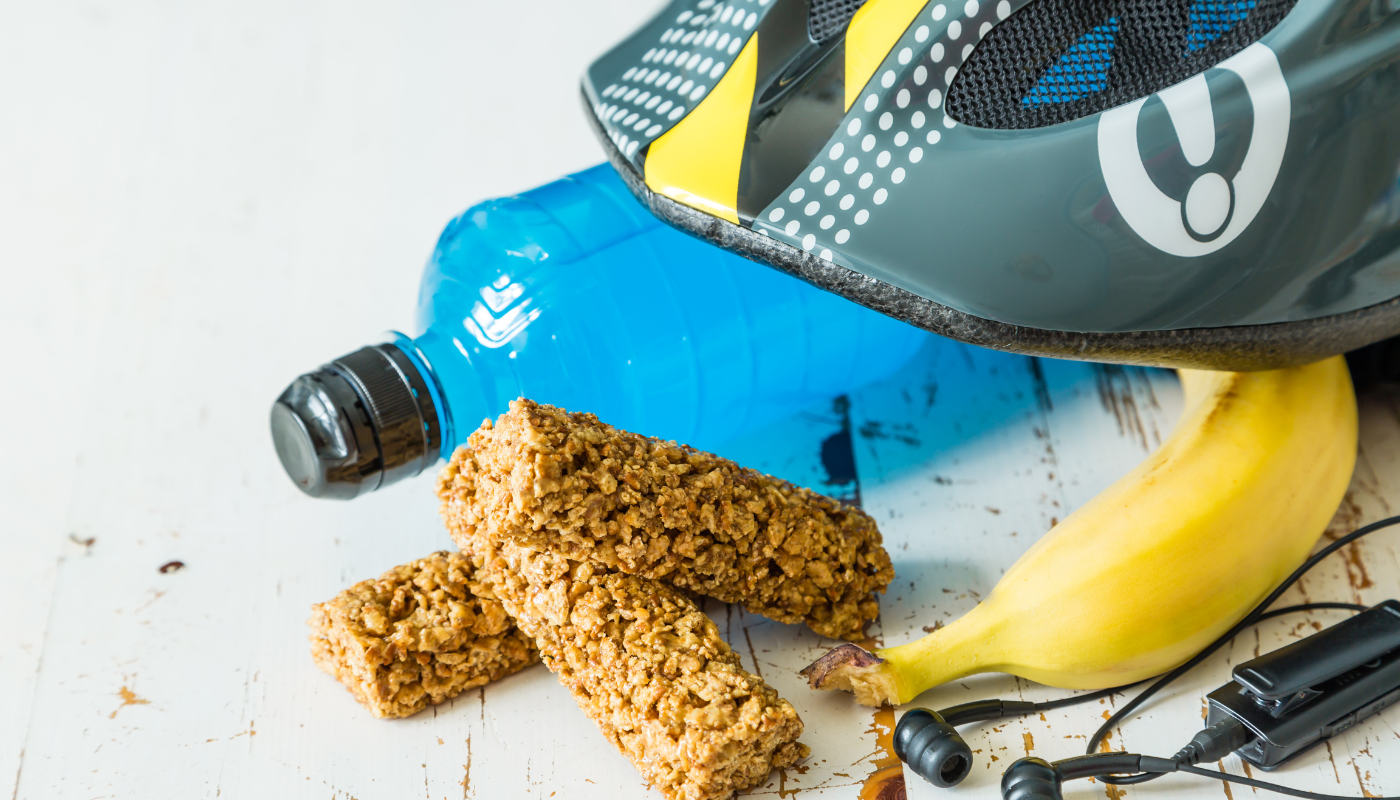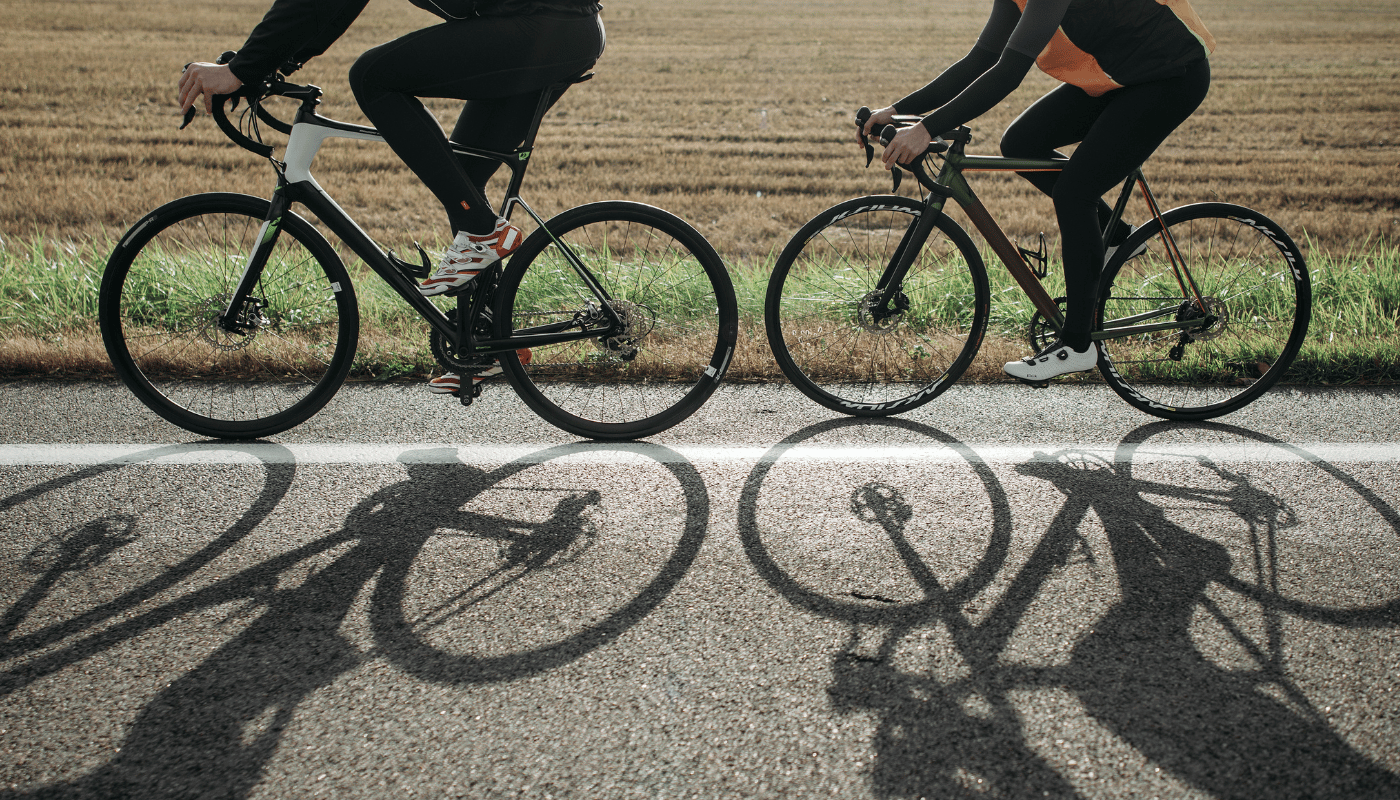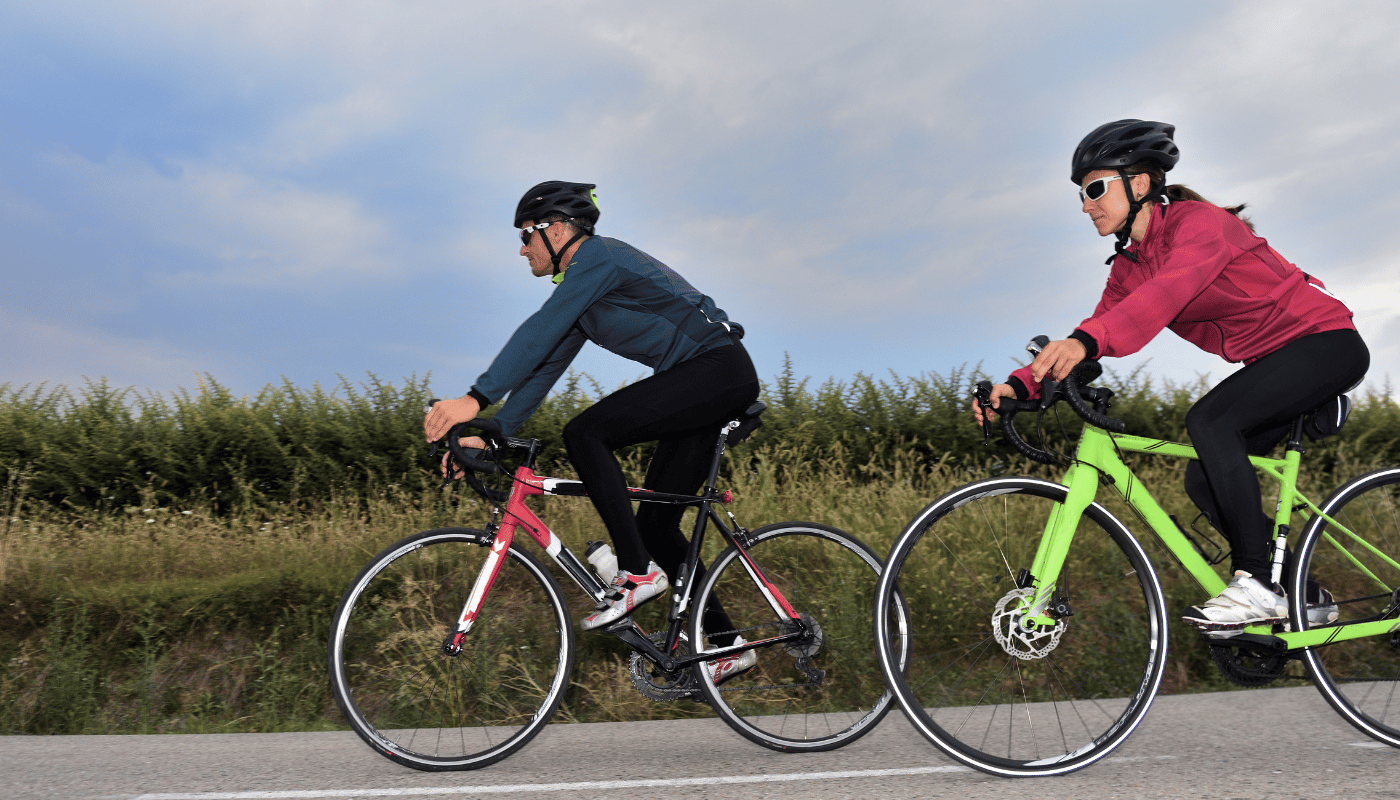Embarking on a cycling journey, whether it’s for fitness, competition, or leisure, requires not just physical readiness but also nutritional preparation. What you consume before setting off can significantly impact your performance and enjoyment. This guide explores the optimal foods that fuel your ride, enhance endurance, and prevent mid-journey fatigue. Get ready to transform your cycling experience by unlocking the secrets of pre-ride nutrition that will keep your pedals turning with energy and ease.
Importance of Pre-Ride Nutrition
Optimizing your pre-ride nutrition is crucial for enhancing endurance, improving performance, and ensuring comfort during your cycling endeavors. What you consume before hopping on your bike can significantly influence your energy levels, the efficiency of your ride, and your overall enjoyment. The right balance of carbohydrates, proteins, and fats, along with proper hydration, lays the foundation for peak performance. Carbohydrates are particularly vital as they serve as the primary source of energy for high-intensity activities like cycling. However, the inclusion of a moderate amount of protein helps in muscle repair and recovery, making it an essential component of your pre-ride meal.
It’s not just about what you eat, but also when you eat. The timing of your pre-ride meal is a delicate balance that can dramatically impact your performance and comfort. Eating too close to your ride may lead to gastrointestinal discomfort, while eating too early might leave you feeling depleted before you even start. Generally, a meal rich in complex carbohydrates and protein should be consumed about 2-3 hours before your ride. For those wondering how long should you wait to go on a ride after eating, this timeframe allows for optimal digestion and energy availability. Moreover, for individuals pondering should I eat before cycling in the morning, a light, easily digestible snack can be beneficial if you prefer to hit the road early, providing the necessary fuel without weighing you down.
| Food Item | Type | Benefits |
|---|---|---|
| Oatmeal | Carbohydrate | Long-lasting energy |
| Banana | Carbohydrate/Fruit | Quick energy, potassium |
| Almond Butter | Fat/Protein | Energy, satiety |
| Yogurt | Protein | Muscle repair |
| Water or Electrolyte Drink | Hydration | Prevents dehydration |
Understanding the importance of pre-ride nutrition and incorporating it into your cycling routine can make a significant difference in your performance and enjoyment of the sport. By focusing on nutrient-rich foods that provide sustained energy and practicing optimal timing, you can set the stage for a successful, enjoyable ride. Remember, every cyclist is unique, so it’s important to experiment with different foods and timings to discover what works best for you.
Fueling Your Cycling: Optimal Pre-Ride Nutrition
Navigating the balance between eating enough to fuel your energy needs and not overeating before a ride is crucial for cyclists, especially those focusing on weight loss. Understanding what to eat before a bike ride to lose weight involves choosing foods that provide sustained energy without weighing you down. A common question is about biking after eating – timing your meals right is as important as what you eat. Ideally, you should allow 1-2 hours after a light meal before hopping on your bike, ensuring your body has enough time to begin digestion, thereby avoiding any discomfort while riding.
Choosing the right foods can make a significant difference in your performance and recovery. Complex carbohydrates are your best friend, providing a slow and steady release of energy throughout your ride. Pair these with lean proteins and healthy fats to fuel your muscles and keep you satiated. Avoid heavy, high-fiber, and high-fat foods immediately before riding to prevent any gastrointestinal distress that can hinder your performance.
Here’s a simple guide to help plan your pre-ride meals:
| Time Before Ride | Food Type | Example |
|---|---|---|
| 2-3 hours | Complex Carbs + Protein | Oatmeal with almonds and banana |
| 1-2 hours | Light Snack | Whole-grain toast with honey |
| 30 minutes | Quick Energy | Energy gel or a piece of fruit |
| Post-Ride | Protein + Carbs | Grilled chicken with quinoa and veggies |
Remember, hydration is key, not just during your ride but also before and after. Drinking water alongside your meals helps in nutrient absorption and keeps you hydrated throughout your cycling session. Experiment with these guidelines to find what works best for your body and cycling goals, especially if your aim is weight loss. Tailoring your nutrition to your exercise can enhance both your performance and your enjoyment of the sport.
Ideal Timing for Pre-Cycle Meals
Understanding the ideal timing for pre-cycle meals is crucial for maximizing your performance and ensuring that you have the necessary energy without feeling sluggish or overly full. A general guideline is to consume a substantial meal around 2-3 hours before embarking on your cycling journey. This timing allows your body to digest and convert the food into usable energy. If a full meal isn’t feasible due to time constraints, a small, carb-rich snack 30 minutes to an hour before cycling can also provide a quick energy boost.
Choosing what to eat before cycling is just as important as when to eat. Foods that are high in carbohydrates and moderate in protein, yet low in fat, have been shown to be most effective. Carbohydrates are the primary fuel source for moderate to high-intensity exercise, making them essential for a cyclist’s diet. However, consuming too much fiber or fat immediately before cycling can lead to gastrointestinal discomfort, so these should be eaten in moderation or well before your ride.
Hydration should not be overlooked, as it is a key component of pre-cycling nutrition. Drinking water or an electrolyte-rich drink before starting can help prevent dehydration, especially in warm weather or during long rides. This is critical for maintaining peak performance and ensuring you feel good throughout your exercise.
Optimizing Meal Content and Timing for Cycling
| Timing | Meal Type | Examples |
|---|---|---|
| 2-3 hours before | Full Meal | Chicken and pasta, Tofu stir-fry with brown rice |
| 1 hour before | Small Snack | Banana, Energy bar |
| 30 minutes before | Quick Snack | Gel, Dates |
| During | Hydration/Energy | Water, Electrolyte drink |
| After | Recovery Meal | Protein shake, Yogurt and fruit |
The concept of what to eat before cycling extends beyond simply choosing the right foods; it also encompasses the timing of these meals to optimize energy levels and performance. Tailoring your nutrition based on the duration and intensity of your cycling session can make a significant difference in how you feel and perform. A balanced approach, combining both solid foods and hydration, adjusted according to the time before your ride, ensures that your body is adequately fueled and ready for the physical demands of cycling.
Best Foods for Sustained Energy
Fueling your body for a long ride or an intense cycling session requires more than just a casual snack. The key to sustained energy is focusing on foods that offer a balance of carbohydrates, proteins, and healthy fats. Carbohydrates are the main source of energy for endurance activities. However, not all carbs are created equal. Complex carbohydrates, found in foods like whole grains, fruits, and vegetables, provide a steady release of energy, preventing the spikes and crashes associated with simple sugars.
Proteins are essential for muscle repair and recovery, making them a crucial part of your pre-cycling meal. Combining proteins with carbohydrates can help enhance the energy availability and prolong your endurance. Healthy fats, especially omega-3 fatty acids found in fish, nuts, and seeds, are also vital. They support sustained energy by slowing down the digestion of carbohydrates, leading to a more gradual and sustained energy release.
Incorporating these nutrients into your pre-cycling meals can make a significant difference in your performance and endurance. Foods like oatmeal, bananas, whole grain pasta, lean meats, and fatty fish are excellent choices. Additionally, hydration plays a critical role in energy levels, so ensure you’re well-hydrated before hitting the road.
- Oatmeal with fresh fruits and nuts
- Whole grain pasta with a lean protein source
- Bananas or other high-carb fruits
- Grilled chicken or tofu with quinoa
- Salmon or mackerel for omega-3 fatty acids
Choosing the right foods before cycling can drastically improve your performance and enjoyment of the sport. By focusing on complex carbohydrates, lean proteins, and healthy fats, you’ll ensure your body has everything it needs for a successful ride. Remember, timing is also crucial, so aim to eat your pre-ride meal about 2-3 hours before starting, allowing your body adequate time to digest and absorb these vital nutrients.
Hydration Before Hitting the Road
Hydration plays a pivotal role in optimizing your cycling performance and overall health. Starting a ride well-hydrated helps maintain your endurance, focus, and prevents the early onset of fatigue. The process of hydrating should begin well before you even saddle up. Consuming an adequate amount of fluids in the hours leading up to your ride can make a significant difference in how you feel and perform on the road.
Water is the most essential component of your pre-ride hydration strategy, but incorporating electrolyte-rich beverages can offer additional benefits, particularly for longer or more intense rides. Electrolytes, such as sodium, potassium, and magnesium, are vital for maintaining fluid balance and supporting muscle function. A balanced intake of electrolytes can help prevent cramping and ensure that your muscles have the necessary resources to perform at their best.
It’s important to recognize the signs of dehydration, which can include dizziness, fatigue, and a decrease in performance. By adequately hydrating before you embark on your ride, you’re not only safeguarding against these symptoms but also enhancing your body’s ability to regulate temperature and maintain high levels of physical exertion for extended periods. For optimal hydration, consider the following guidelines:
- Begin hydrating at least two hours before your ride by drinking 17-20 ounces of water.
- Add a pinch of salt or an electrolyte mix to your water to replenish minerals lost through sweat.
- Avoid alcohol and caffeine in the hours leading up to your ride, as they can contribute to dehydration.
- Check the color of your urine to gauge your hydration level; aim for a light straw color.
- Consider the weather and your sweat rate to adjust your hydration needs accordingly.
Incorporating a structured hydration plan into your pre-ride preparation will not only boost your performance but also enhance your enjoyment of cycling. Remember, hydration is not just about drinking water; it’s about ensuring your body has everything it needs to function optimally during your ride. Pay attention to your body’s signals and adjust your fluid intake as necessary to stay hydrated and energized from start to finish.
Avoiding Common Dietary Mistakes
When preparing for a cycling session, what you choose to eat can significantly impact your performance and overall experience. One of the most common dietary mistakes is consuming too much fiber right before riding. While a diet rich in fiber is beneficial for overall health, high-fiber foods can cause gastrointestinal discomfort during vigorous exercise. Opting for low-fiber meals a few hours before cycling ensures your body focuses on performance rather than digestion.
Another mistake to avoid is overeating or eating too close to your cycling time. A heavy meal can lead to sluggishness and discomfort, hindering your ability to pedal efficiently. It’s crucial to give your body adequate time to digest before hitting the road or trail. Hydration is also key; failing to drink enough water can lead to dehydration, significantly diminishing your stamina and concentration. Start hydrating several hours before your ride, and continue to sip water throughout to maintain optimal performance levels.
Lastly, relying solely on sugary energy bars or drinks for a quick boost is a mistake. While they can provide an immediate surge in energy, this is often followed by a sharp crash, leaving you feeling tired and drained. Incorporating a balance of carbohydrates, proteins, and healthy fats in your pre-ride meal can give you sustained energy throughout your cycling journey.
Further Insights on Dietary Preparations for Cycling
In addition to avoiding common mistakes, understanding your body’s unique needs is essential for optimal cycling performance. Tailoring your diet to support your energy requirements can enhance endurance, speed, and recovery. Experimenting with different foods and timing can help you discover the perfect nutritional strategy that works for you.
- Start your day with a balanced breakfast that includes a moderate amount of carbohydrates and protein.
- Hydrate well in advance, and continue to drink water or electrolyte solutions during your ride.
- Avoid high-fiber and fatty foods before cycling to prevent digestive issues.
- Limit or avoid caffeine and sugary drinks, which can lead to dehydration and energy crashes.
- Post-ride, focus on recovery by consuming a meal rich in proteins and carbohydrates to repair muscles and replenish energy stores.
By steering clear of these common dietary mistakes and paying close attention to your body’s signals, you can significantly enhance your cycling performance and enjoyment. Remember, nutrition plays a critical role in how well you perform and recover, so give it the attention it deserves. Experiment, adjust, and find the perfect balance that suits your body and cycling routine.



